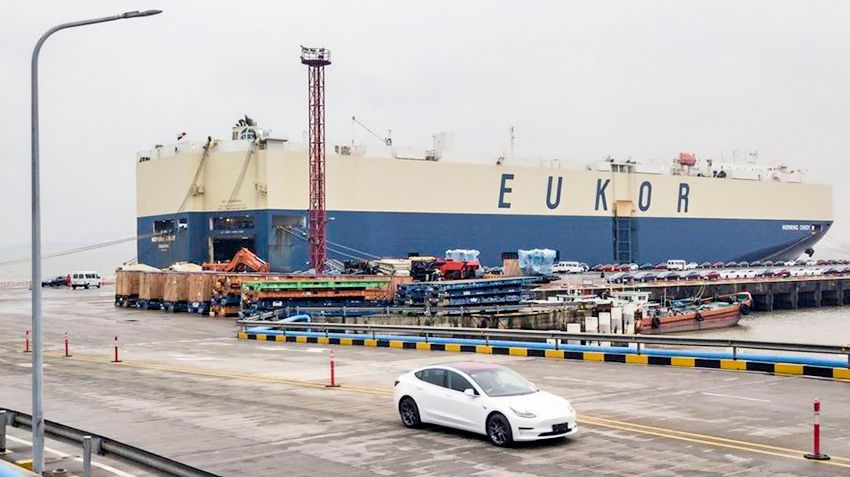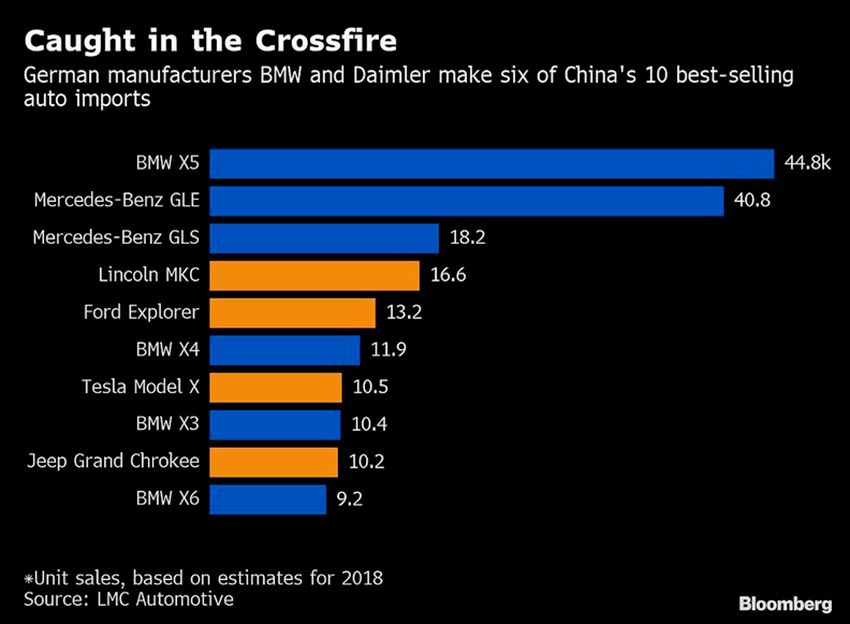Us-China trade war – new round announced

27 August 2019
Beijing raises tariffs on American cars by 25% from 15 December
President Donald trump said last Friday evening that in coming months he will increase tariffs on Chinese imports to 30 percent after Beijing announced that it would impose additional tariffs on US goods, including on cars.
On Friday, trump wrote on his Twitter page that the tariffs on Chinese exports of $250 billion from October 1 will rise to 30 percent from current 25 percent. New tariffs on September 1, will increase, respectively, from 10 to 15 percent.
Trump tweet said: "unfortunately, the previous administration allowed China to get ahead is so fair and balanced trade that it became a burden to the American taxpayer. As President, I can't let this happen!".
The morning of Friday, China said it will also impose additional tariffs on American goods amounting to $75 billion in retaliation for recent increased scheduled fees trump on Chinese imports, which caused the dissatisfaction of manufacturers and increased concerns about the transition of a trade war between two economic giants in a protracted form.
Some of the countermeasures, according to an announcement from the Ministry of Commerce of China, will take effect from 1 September and the remaining 15 Dec. The new 10-percent tariff on Chinese exports worth almost $300 billion entered the US ahead of a previously installed graphics.
In turn, in September Beijing imposes additional 5 percent tariff on us soybeans and crude oil imports, but a 25 percent duty on American cars will be resumed December 15.
Earlier, Beijing refused the introduction of a 25% customs duty on imported cars from the United States in the efforts for the resumption of trade negotiations between the two countries. By the way, a strong drop in sales of American automobile brands in 2018 and led the local market for the first in nearly 30 years the failure of the sales – ed.
Among automakers most vulnerable to additional fees to be American concern of Ford Motor Co., the company Tesla Inc., and German concerns Daimler AG and BMW Group. So, Ford is exporting to China the crossover Ford Explorer and the Lincoln MKC, in addition to the U.S. plants are delivered to the car brands Jeep and Lexus.
Accordingly, BMW and Daimler will also export to China a large number of SUV plants in the U.S., but Tesla has not yet had time to expand the production of its electric cars at its newest plant, the Gigafactory 3.

According to a study LMC Automotive, six of the ten most popular models of vehicles exported from the United States on the world's largest car market, sold under the two German brands
In a recent statement John Bozzelli, who heads a special group "Here for America", which includes VW, Daimler and BMW, said: "Wage war on the principle of "a tooth for a tooth ", without any meaningful negotiations, harm the American automotive industry.Bozzella, who also holds the post of General Director of the Association of global automakers, which consists of Toyota Motor Corp., Hyundai Motor Co., Nissan Motor Co. and other foreign brands, producing cars in the US, added: "When these tariffs were originally introduced by China in 2017, U.S. exports of finished vehicles have fallen by 50 percent. We can't allow American workers again have been harmed".
According to the country's largest importer of car Auto Sinomach – China imported in 2018 from U.S. 190 118 vehicles, which is 35 percent lower than in 2017 due to trade tensions and the increase of customs tariffs.
In his statement on Friday, Ford called: "the United States and China to find a short-term solution for the remaining issues through continued negotiation. For these two important economies, it is important to work together to promote the balanced and fair trade."
Friday in addition to brands about the negative consequences of a prolonged trade war, the White house warned the other main business group.
The U.S. chamber of Commerce strongly rejected a call for trump to American companies immediately begin to look for alternatives for trade and manufacturing operations in China.
Executive Vice President and head of international Affairs US chamber of Commerce Myron Brilliant said in a statement: "While we share the disappointment of the President, we believe that continued constructive engagement is the right way forward." He urged both sides to quickly conclude the bargain: "Time is of the essence. We do not want further deterioration in relations between the US and China."
The us-China business Council said that after the new recent salvos of trade war, millions of US citizens will inevitably suffer increasing trade tensions between the United States and China – the biggest economies in the world.
The group that represents American companies doing business in China, called on trump and Chinese leader XI Jinping to end the repeated struggles of the tariff on the principle of "a tooth for a tooth" and focus on resolving differences. In a statement the Group said: "the Trade deal, aimed at solving legal problems formulated (office of the U.S. trade representative) in its report under section 301, will meet the mutual interests of both China and the United States. Such deal is quite possible in the foreseeable future, and should be concluded as soon as possible".
News from Beijing has already caused concern about the prospects for growth in the global economy, which began to look more shaky. Emerging-market currencies and commodities also fell on Friday, while insurance assets such as the Japanese yen and gold went up.
Now, according to analysts and experts, are the only hope to visit in September to Washington, the Chinese government delegation for the next round of trade negotiations. The world is on the brink of a global crisis.
PS In the past 30 years, the U.S. has allowed and even sponsored the transformation of China from a poor agrarian country in the world (and of course, above all, American) factory for the production of cheap consumer goods with low added value (closing under a deal virtually all own similar production). Now, when the Communist Beijing became a helluva lot of prosperous, however, and most importantly striving for advanced technologies, with the explicit desire after a decade and a half to become one of the world's leaders in technology, America in the person of the President of Donald trump's "changed his mind" and in the same manner in which in the 1980s was hands break out in Tokyo, intended to slow down China's development, leaving it as a "forever catching up" countries are not competing for victory in the field of high technology.
That's just China in contrast to Tokyo – not a political puppet of Washington, and the specific dependence on exports to USA China in the 21st century is considerably less than that of Japan, at the end of the 20th century.
PSP.s by the Way, the USA is seriously dependent on imports from China of lithium and other rare earth metals, without which it can not do the release of Tesla and other manufacturers of electric cars, hybrids and gadgets.
But, in any event, "the battle of the whale with an elephant" could cost the world a new global crisis, so it would be better that they parted in peace....
|
|
|
Element was not found.








